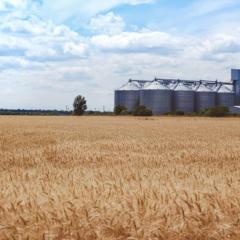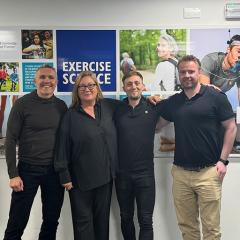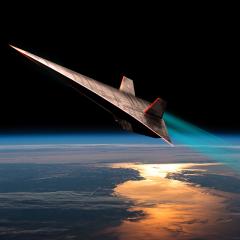UQ Bachelor of Engineering (Honours) (Software) / Bachelor of Science (Mathematics) graduate Chelsea Edmonds was awarded a prestigious Cambridge Australia scholarship to undertake her PhD in October 2019.
When the COVID-19 pandemic disrupted the globe in early-2020, she had to return to Brisbane and continue her PhD remotely from her parent’s spare bedroom.
Eighteen months later, Chelsea is set to return to Cambridge to pick up where she left off.
UQ Global Engagement and Entrepreneurship had a chat to Chelsea about the challenges of undertaking a PhD remotely, what she is looking forward to about returning to Cambridge, and her advice for future scholarship applicants.
Can you tell us about your UQ study background and your Cambridge PhD and scholarship?
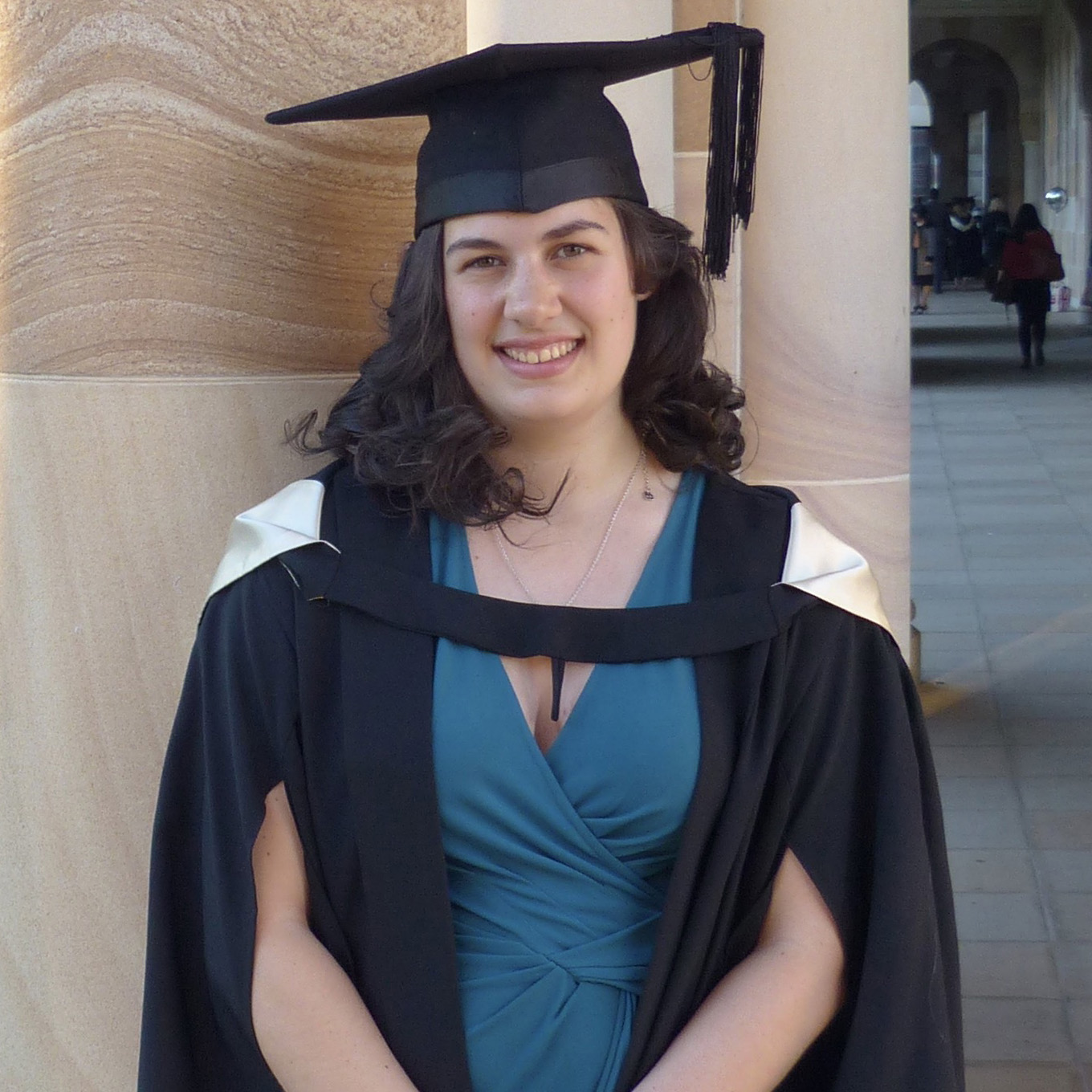
I did a Bachelor of Engineering (Honours) majoring in Software, and a Bachelor of Science majoring in Mathematics. My honours thesis was in formal methods in the School of Information Technology and Electrical Engineering. That was what got me interested in theoretical computer science.
I had always been tossing up postgraduate study. I also did an exchange in the UK when I was an undergraduate, which I really enjoyed. So when I decided to do a PhD after a year of full-time work, I applied to three universities in the UK first, and I ended up getting offers from all three and having to choose, which is never a situation I expected to be in. It was just one of those moments when you get that kind of scholarship – one of those insane moments of my life. But Cambridge had always seemed like an impossible dream – I just couldn’t turn it down!
For my PhD, I’m working on formalising combinatorial proof techniques using a theorem prover. In other words, I’m developing techniques to help mathematicians and engineers verify and automate formal mathematical proofs. My supervisor, Professor Lawrence Paulson, is an expert in the field and introduced the software I am using for my research. Working with leading researchers is one of the incredible things about studying in Cambridge. In my honours thesis I cited about four of his articles, so when I was applying for my PhD two years later, I thought: that name sounds familiar!
What are the biggest challenges you have faced undertaking your PhD remotely and during a pandemic?
The time difference has probably been the most challenging part. There have been things I’ve missed out on. A lot of seminars happen in the afternoon, but I’m just not awake enough to process mathematics at one in the morning!
That said, people have been really accommodating. My supervisor and I have a quick catch up once a week, the department has supported me to continue to work remotely, and some of the other PhD students in the computer science theory group moved the online social catch up to the morning so I could join. An unexpected bonus of being back in Australia since the pandemic hit has been reconnecting with a number of people and programs around UQ – opportunities I’m especially thankful for given the time difference to the UK.
I also had five months in the UK right at the beginning, which I’m very grateful for. It would have been a very hard task to start a PhD remotely. At least I was able to form those initial connections, meet my supervisor in person, that kind of thing.
Cambridge Australia has been very supportive throughout the whole situation, which I really appreciated. Supporting a one-off flight home, things which they were never contracted to do, which made a huge difference. That’s been really nice.
What are you most looking forward to upon your return to Cambridge?
I’m looking forward to being back in that research environment. There’s something undeniable about being in a place like Cambridge where you’re just surrounded by other students and people who are like-minded. Having the opportunity to engage with people who have had these incredible journeys to get to where they are is one of the cool things about being in Cambridge.
The history of the place too. The computer science department is one of the oldest in the world, which isn’t saying much, because that’s only eighty years. But it’s that history which is just amazing to be a part of. I remember being there and cycling along seeing the spires of King’s College and thinking: Oh yeah – I live here!
What advice would you give someone considering applying for a Cambridge Australia Scholarship?
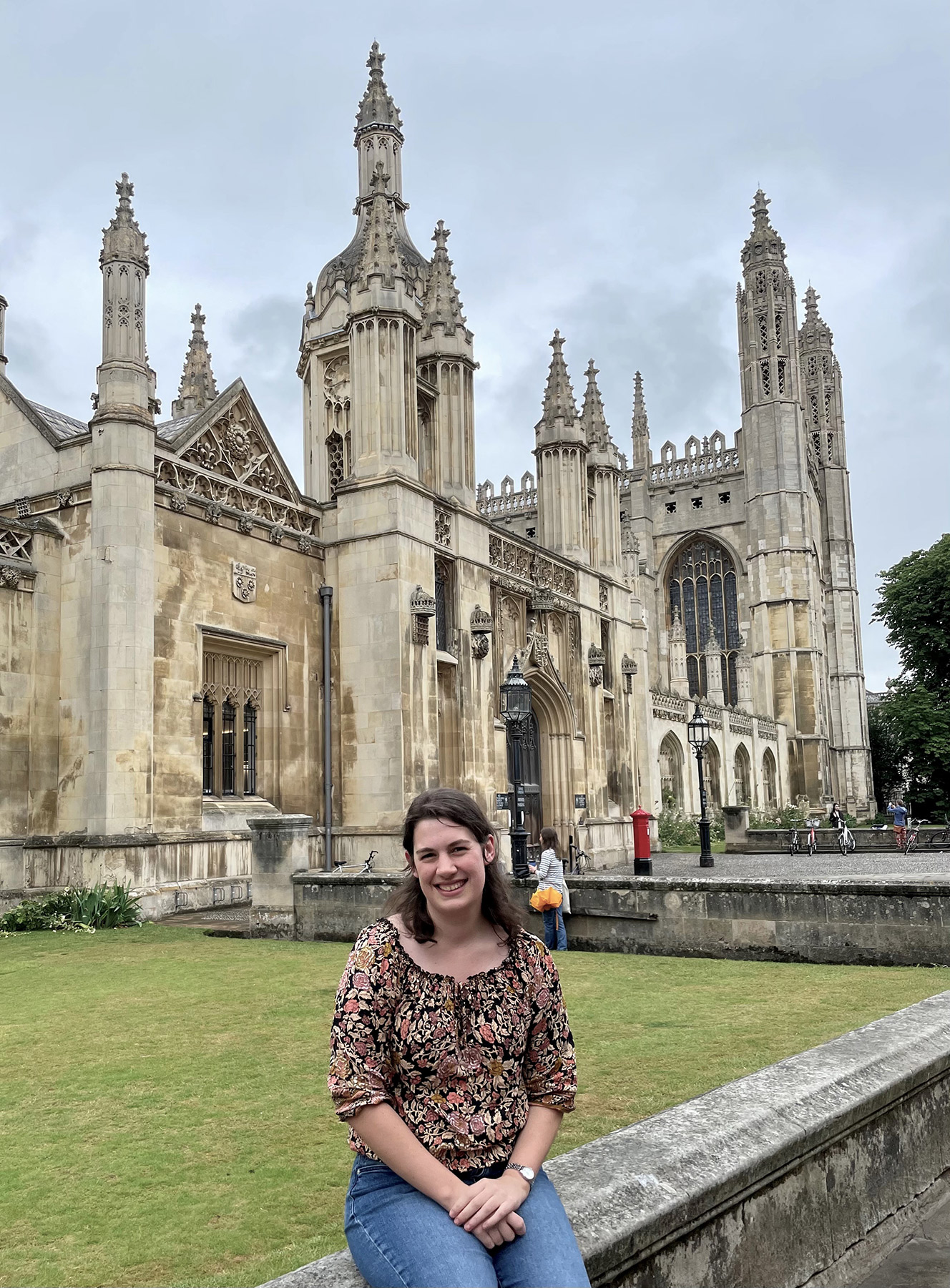
Just apply! There’s absolutely no harm in giving it a shot, because you never know what will happen.
I think academic results have an obvious part to play – they’re probably the first thing they look at. I did well academically and received a University Medal from UQ, which no doubt helped my application. It’s can also be really valuable to connect with some of the great research opportunities and academics at UQ – I’m very thankful for the support I received from my honours supervisors and other lecturers in the School of Information Technology and Electrical Engineering.
I also think a well-rounded applicant is important. The prestigious universities get a lot of high achievers applying. If they’ve got ten people with similar academic results, the differentiating factor is going to come down to what other skills they have. And these universities and scholarship providers are looking for people who will be able to make a difference.
While at UQ, I just said yes to a lot of stuff. Which sometimes got me way too busy, but it was worth it! So that’s what I always tell people: just say yes! I volunteered for a student society called Robogals, which encourages young girls to consider careers in STEM. The UQ chapter was a tiny society when I joined, but part of an international organisation started by Marita Cheng, who was Young Australian of the Year. I got really involved in that and ended up leading the Asia-Pacific region for three years towards the end of my degree. It was totally worth the experience, being put in charge of managing a region of an organisation. You don’t get that experience in industry that quickly. I wasn’t a very confident speaker, but getting in front of a group of school kids does wonders for your public speaking skills! Through that and other opportunities, I met people from all over the world. It opened my eyes to things I had thought were maybe a bit impossible, like going to Cambridge. I knew of people who had gotten a scholarship through some of those activities, and so I thought: Okay, that’s not so impossible. I know someone who has done that!
My last piece of advice to those considering applying is: don’t be afraid to reach out to people already at the university you want to attend. Most people have usually been through the same thing and are pretty open to helping out. The departments and potential supervisors can often advocate for the students they want, so if you have a little bit of a relationship with them, that can really help. If you do plan to reach out to a potential supervisor, it’s worth doing so early and after having put together some initial ideas of the research you’d like to do. PhD applications can take some time, so give yourself at least a few months before that December application deadline!
Each year, Cambridge Australia Scholarships award up to ten PhD scholarships and a number of master's degree half-scholarships to Australian students.
For more information about Cambridge Australia scholarships, visit:

